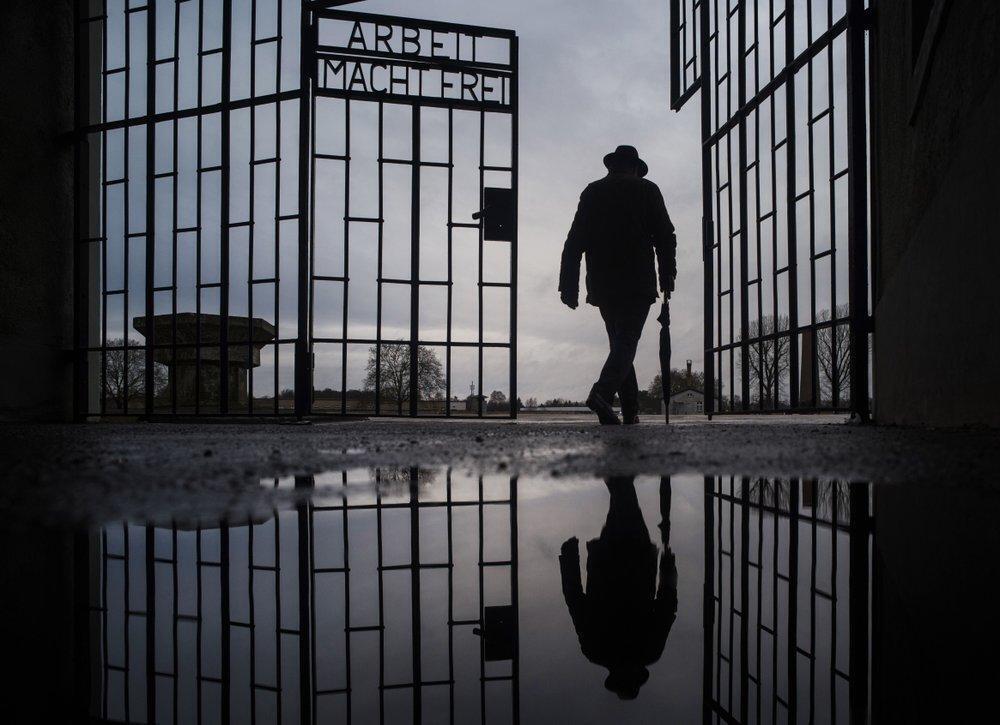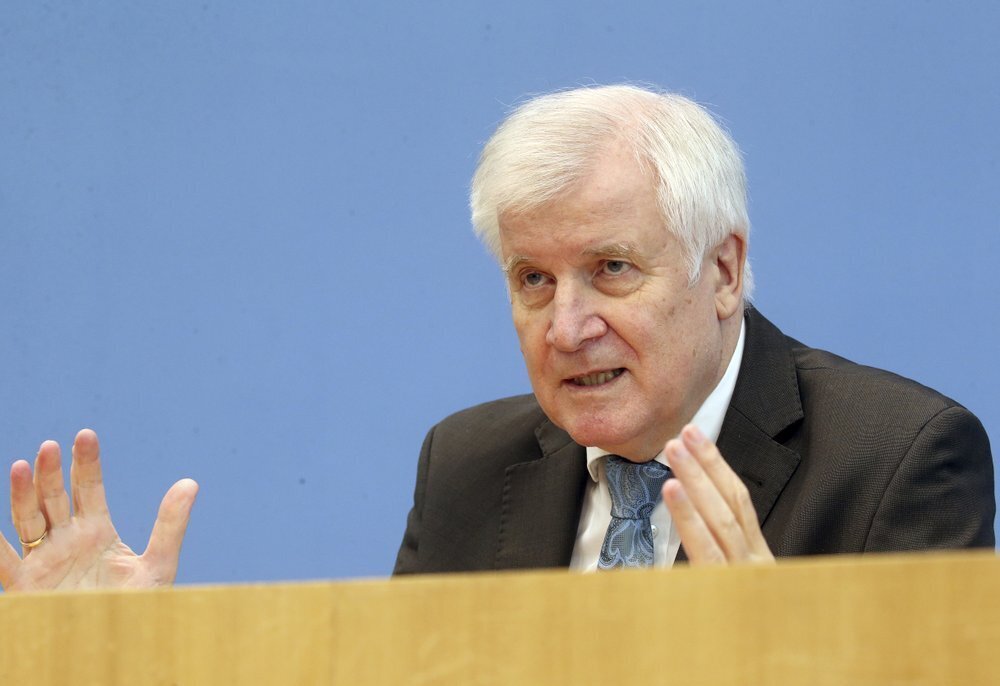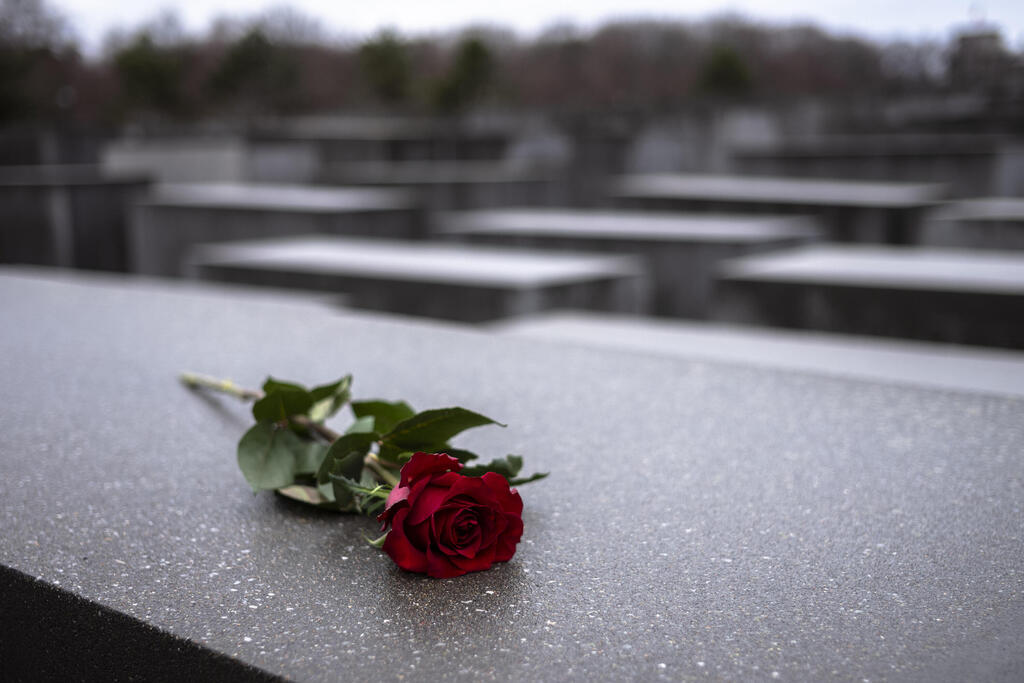The German government on Wednesday agreed on a draft law to naturalize some descendants of Nazi victims who had previously been denied citizenship.
Described by Berlin as a symbolic step, the measure helps close legal loopholes which had led to many victims' descendants having their citizenship application rejected.
3 View gallery


A man walks through the gate of the Sachsenhausen Nazi death camp with the phrase 'Arbeit Macht Frei' (work sets you free) in Oranienburg, Germany
(Photo: AP)
"This is not just about putting things right, it is about apologizing in profound shame," said Interior Minister Horst Seehofer.
"It is a huge fortune for our country if people want to become German, despite the fact that we took everything from their ancestors," he said in a statement.
While Germany has long allowed descendants of persecuted Jews to reclaim citizenship, the lack of a legal framework meant many applicants were rejected before a rule change in 2019.
Some were denied because their ancestors fled Germany and took on another nationality before their citizenship was officially revoked.
Others were rejected because they were born to a German mother and non-German father before April 1, 1953.
Passing the 2019 decree into law was a way of giving them "the value they deserved" while putting beneficiaries on a firmer legal footing, interior ministry spokesman Steve Alter said.
Germany's Central Council of Jews said that the previous decree had been "inadequate" and that it had long campaigned for a statutory right.
"It is a gesture of decency if both the victims and their descendants are able to claim German citizenship on legal grounds," said the council's president Josef Schuster.
The difficulties for some in using ancestry claims for citizenship came into focus partly due to the sharp rise in number of applications from Britons evoking Nazi persecution of their ancestors, after the UK voted to leave the European Union.
From 43 such applications in 2015, the number had soared to 1,506 in 2018, according to ministry figures.
In 2019, Austria also changed its citizenship law to allow the children, grandchildren and great-grandchildren of those who fled the Nazis to be renaturalized.
Previously, only Holocaust survivors themselves had been able to obtain Austrian nationality.



